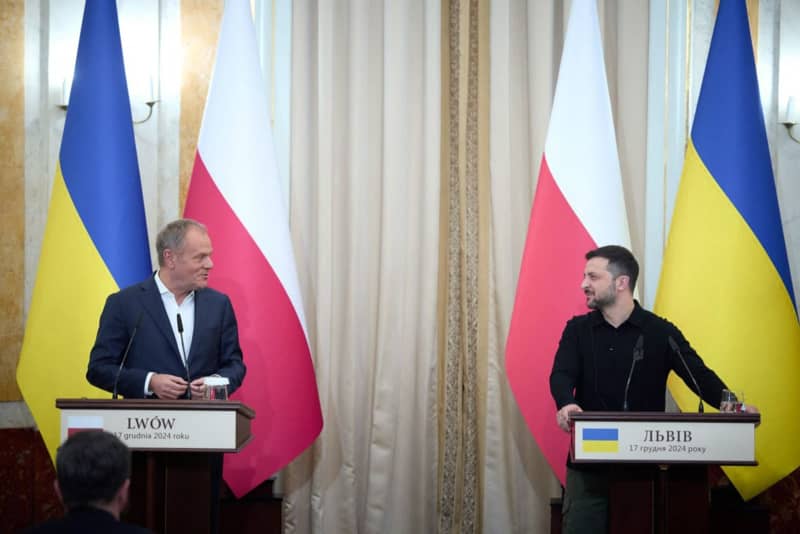Poland’s Prime Minister Donald Tusk made a significant plea for increased Western support for Ukraine during a recent visit to Lviv, where he met with Ukrainian President Volodymyr Zelensky. Tusk emphasized the urgency of solidarity among Western nations as Ukraine confronts the ongoing threat of Russian aggression. His remarks came as the conflict continues to escalate, underscoring the necessity for a unified response from Western leaders. Tusk’s call to action reflects a broader concern about the implications of Ukraine’s potential defeat not only for the country itself but also for global security and democratic values.
During the joint press conference following their meeting, Tusk made it clear that speculation regarding Ukraine’s possible defeat must cease. He urged all Western leaders to actively engage in supporting Ukraine, stressing that this is a critical moment in the fight against Russian expansionism. His comments resonate with a growing sentiment in Eastern Europe about the need for decisive action to deter aggression and to uphold the sovereignty of nations threatened by larger powers.
The visit also signifies the strong ties between Poland and Ukraine, especially in light of their shared history and present challenges. Tusk’s trip to Lviv is not merely political; it symbolizes a gesture of solidarity and partnership between the two nations. This bond is essential in countering the influence of Russia, which has increasingly sought to undermine the stability of its neighbors. By standing together, Tusk and Zelensky signal to the West the importance of unified support for Ukraine.
Zelensky welcomed the support from Poland, recognizing the critical role that Poland plays in the broader context of Ukraine’s struggle. As tensions with Russia continue to escalate, having a strong ally like Poland is vital for Ukraine’s defense strategies and international advocacy. The collaboration between the two leaders can inspire other Western nations to follow suit in providing necessary military, economic, and humanitarian support to Ukraine.
Moreover, Tusk’s emphasis on rallying Western leaders indicates a keen awareness of the geopolitical ramifications of the conflict. He highlighted that the outcome in Ukraine could have far-reaching consequences not only for Europe but also for other regions where authoritarianism threatens democracy. The urgency articulated by Tusk reflects a growing consensus that a robust response to Russian aggression is essential for maintaining the international order and protecting fundamental freedoms.
In closing, Tusk’s visit to Lviv and his public appeal for more substantial Western backing for Ukraine underline a pivotal moment in the ongoing conflict. His statements are a reminder of the responsibility that democratic nations have to support their allies in times of crisis. By working together, the West can strengthen Ukraine’s position and deter further aggression, ensuring a more secure future for not only Ukraine but also for the principles of democracy and sovereignty across the globe.

